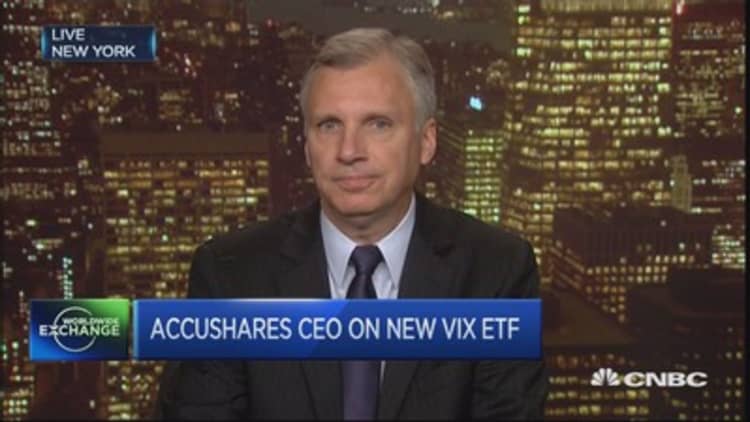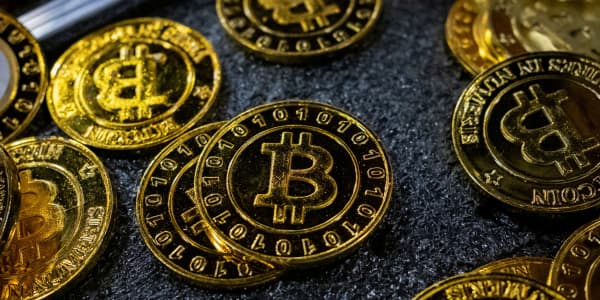Do ETFs pose a risk to the marketplace in times of high volatility? Possibly, according to a government watchdog report, but there are no specific accusations.
The report I'm referring to comes from the Financial Stability and Oversight Council (FSOC), which is the governmental organization created by the Dodd-Frank Act in 2010.
Its purpose is to identify and monitor excessive risks to the U.S. financial system. They have issued an annual report since 2011 outlining risks to the financial system, which has turned into a "this is what we're worried about" report on anything and everything that could possibly go wrong in the financial system.
Read MoreETF craze crosses a huge hurdle
In other words, their job is to worry about everything.

While the FSOC is a panel of regulators—its primary purpose is to keep a line of communication open among financial regulators—they do have power.
Their members—which include the Secretary of the Treasury, the Chairman of the Federal Reserve, and the Comptroller of the Currency—are at the heart of a massive debate about whether certain nonbank financial firms should be designated "systemically important," which would subject them to tougher regulation.
Nonbank firms could include asset managers. We're talking big firms like Fidelity and Vanguard.
Read MoreNew ETF launching
Naturally, the Vanguards and Fidelitys of the world have been fighting this tooth and nail. They do not want additional regulation. Now, in addition to focusing on large institutions, the FSOC and the SEC are focusing on the products that asset managers provide.
One of those products, of course, is ETFs, and that's how they have got caught up in this debate.
What's the worry? Buried on page 118 of the 150-page report is this sentence: "The council is exploring how these funds...may raise distinct liquidity and redemption risks, particularly during periods of market stress." They are also looking into "how incentives to redeem funds may increase the risk of fire sales."
Is this a real concern? There has been plenty of stress in the system in the last five years and ETFs with a few very small exceptions have performed exceptionally well.
I have no problem talking about and recommending "plain vanilla" ETFs for investors, i.e. simple indexed and sector ETFs, just like I have no problem talking about most mutual funds, despite their higher costs.
However, there are pockets of the ETF business that I have had concerns about for years.
Take leveraged ETFs. I've had concerns that they can magnify the impact in the underlying basket of stocks. This is not an issue for sectors with plenty of liquidity but for those that are relatively thinly traded (gold miners, for instance) it could be more of an issue.
I have these concerns, even though a 2014 Federal Reserve report concluded that fears about leveraged ETFs were "overblown."
I've also had concerns when I see some ETF issuers trying to get into very exotic areas (leveraged loans, for example) where the underlying assets may be inherently illiquid. Creating a popular ETF in an illiquid product should get a look at.
By the way, the list of issues that worry the FSOC is long and getting longer. In 2011, there were worries about the European debt crisis impacting the U.S. In the last year, according to their most recent report, "the Council has considered issues such as short-term wholesale funding, cybersecurity, volatility in fixed income markets, equity market structure, high-frequency and automated trading activities, leveraged lending, reference rate reform, and interest rate risk at a variety of financial institutions."
Get it? They are worried about everything.
Meantime, the regulators' war with asset managers continues; the main battleground is over more information. The SEC is trying to get mutual funds to report more information on their holdings.
You can imagine how that is going over.






